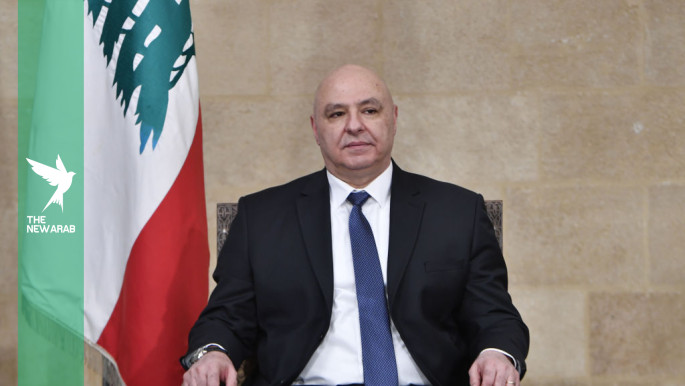Joseph Aoun has been under increasing US pressure to negotiate with Israel [Getty]
Lebanon has no option but to engage in negotiations with Israel, Lebanese President Joseph Aoun said on Monday, amid increased reports that Israel is preparing for a renewed offensive against Hezbollah.
It comes amid mounting US pressure on Beirut to begin talks with Tel Aviv and disarm the Iran-backed militant group.
Aoun has repeatedly called for dialogue, but conflicting reports in recent weeks have questioned whether Lebanon wants to limit these talks to a ceasefire mechanism or move onto high-level discussions.
“There is no option for Lebanon but negotiation. In politics, there are three tools of action: diplomacy, economy, and war. When war leads us nowhere, what should we do? The end of every war around the world has been negotiation — and negotiation is never with a friend or an ally, but with an enemy,” Aoun said according to a presidency statement.
“The language of negotiation is more important than the language of war, which we have seen the consequences of.”
The president said diplomacy has been adopted by all three leaders in government; himself, Speaker Nabih Berri – an ally of Hezbollah – and Prime Minister Nawaf Salam.
Lebanon has reached out to regional and world powers amid an uptick in threats by Israel, which it still considers an “enemy” state and does not recognise.
Beirut has witnessed a flurry of diplomatic visits in recent days, as countries like Egypt and Germany have offered to step in and mediate talks with Israel to prevent the outbreak of another war.
Last week, Aoun told visiting German Foreign Minister Johann Wadephul that Lebanon is ready for negotiations, but any negotiation “requires mutual willingness, which is not the case” with Israel as it continues to strike south Lebanon.
Israel threatens Lebanon over Hezbollah disarmament
Israel and its main ally the US are pressing Lebanon to disarm the Iran-backed militant group Hezbollah, which came out significantly weakened after the war which ended in November 2024.
The Lebanese government has said repeatedly that military dualism must end in Lebanon, and the state should have exclusive control over all weapons.
The Lebanese army has been disarming the region south of the Litani River close to the Israeli border, saying this phase should be over by year’s end before moving to the north of the river..
Israel has claimed that Lebanon is not disarming Hezbollah fast enough, and its defence minister, Israel Katz, claimed Aoun was “dragging his feet.”
Israel’s state television broadcaster Kan also claimed recently that Hezbollah was rebuilding its military infrastructure in Beirut and north of the Litani River.
Prime Minister Benjamin Netanyahu – wanted by the International Criminal Court for war crimes in Gaza – has said he will not allow Lebanon to become a “renewed front” against Israel.
US envoy blames Lebanon
On Monday, US ambassador to Turkey and regional envoy Tom Barrack appeared to blame Lebanon amid Israel’s threats of war.
Speaking to a group of journalists, Barrack expressed frustration that US pressure on Beirut had led nowhere, adding that it was too soon to speak of deadlines or agreements as Lebanon and Israel were “still in discussion.”
“So why doesn’t your beautiful Lebanese government pick up the phone? The US President calls Russian President Vladimir Putin and also calls Chinese President Xi Jinping — can’t President Aoun pick up the phone and call Netanyahu to say, ‘Let’s put an end to this farce, let’s settle the matter’?” media reports quoted Barrack as saying.
Attacks continue
Since the November ceasefire, Israel is believed to have killed more than 300 people in Lebanon, including hundreds of Hezbollah members and some 100 civilians.
On Tuesday, Israeli forces blew up a house in the border village of Mays al-Jabal.
The previous day, the Israeli military said it killed Muhammad Ali Hadid, who it claimed was a commander in Hezbollah’s Radwan Force in the Nabatiyeh area.
The Israeli military said it also “struck and eliminated a Hezbollah terrorist” in the village of Ayta al-Shaab near the Israeli border, who the army accused of attempting to “gather intelligence” on Israeli troops.
